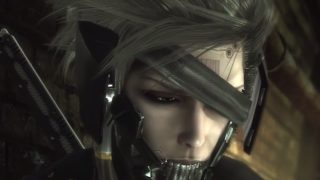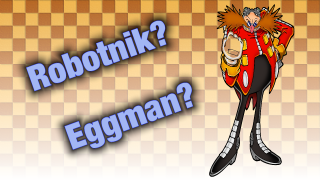A reader named John was curious about a key scene in Metal Gear Solid 3: Snake Eater. It’s a short scene with some important information, so it should be interesting!
When you first meet Granin (a scientist who made the designs for the first metal gear), he talks about the origin of the name “metal gear”. The only problem is, his explanation doesn’t make sense. I was wondering if this was just a line that was lost in translation, or if the Japanese version also is stilted in his explanation. Thanks!
John was awesome and included links to the English and Japanese scenes on YouTube, which saved me a ton of time. Thanks!
After looking at the scene in question I can see why the English scene doesn’t explain it as well as the Japanese scene, but it’s really difficult to explain with words. So I put the two scenes together into one video and subtitled the Japanese scene:
Even with this, the differences are tough to pick up on. First, here’s the scene side-by-side:
| Japanese Version (basic translation) | English Version |
| Granin: A walking tank – a robot. | Granin: Yes, a walking tank – a robot! |
| Have you heard of the theory of an evolutionary “missing link” between apes and humans? | Are you familiar with the theory of the missing link between apes and humans? |
| Well, this technology will be a kind of “gear” that links foot soldiers and weaponry. | Well, this technology will be the missing link between infantry and artillery. |
| A gear literally made of metal. | A kind of metal gear, if you will. |
| A great gear of metal that will usher in an evolution in weaponry of revolutionary proportions! | And this magnificent metal gear will mark a revolutionary step forward in weapons development! |
| Snake: A metal gear… | Snake: Metal Gear… |
I feel the official translation handles the scene well, especially given the timing and lip flap constraints. It’s just that there are some language quirks at play that don’t translate into English, plus the Japanese explanation involves a bit of a logical stretch too. Here are the key points:
- Granin starts by talking about evolution and the idea of a “missing link”. He says that his invention will be a similar missing link, but in terms of warfare. In Japanese, he likens this missing link to a gear – you know, the actual things inside machines that turn and clank and such. His comparison is a little forced, but he uses the Japanese word for “metal” and the Japanese word for “gear” during the explanation.
- The theme of evolution runs throughout the Japanese scene. Granin’s first line is about evolution, his description is about evolution, and his closing comment is also about evolution – he says that this “gear of metal” will bring about a new evolution in weaponry. Basically, he sees his so-called “gear” as something that will drive the evolution of weapons forward.
The English scene is mostly about evolution too, but Granin’s closing comments aren’t as obviously tied to the theme at first glance – he mentions a “step forward” in “development” instead. - Snake’s line at the very end is what ties Granin’s explanation in with the well-established “Metal Gear” name. In the Japanese scene, he actually says “metal gear” in English while the subtitles use a Japanese text trick to include both the Japanese and English terms at the same time.
In this way, the Japanese writers were able to take the Japanese words for “metal” and “gear” from Granin’s lines, turn them into English with Snake’s line, and ensure that Japanese players would get the connection between the two by combining them in the subtitles. As a bonus, it helps explain the English phrase for Japanese players with poor English skills. Naturally, these things wouldn’t be needed by an audience of native English speakers, so these language crutches and language tricks were lost in translation.![LA LI LU LE LO YOU SMELL LIKE A HOBO LA LI LU LE LO YOU SMELL LIKE A HOBO]()
Even with all this, this retroactive explanation of the “Metal Gear” term seems a bit forced in Japanese, so it’s natural for the English version to feel the same way. As far as I know, this idea behind the name didn’t exist when the series was first created, so shoehorning any explanation in would’ve probably had the same effect. Still, it’s a neat idea and I’m glad I was able to revisit this scene in both versions of the game. I’d actually completely forgotten about this scene and this explanation, so hopefully this look into them has been enlightening and made the scene more memorable.
As always, it’s very possible I’m missing something or I’m wrong about something here. I’m not a Metal Gear expert, I’ve just played a lot of the games once or twice, so if I’ve messed up please let me know. And what was the meaning behind “Metal Gear” before this explanation anyway? Was it just a phrase that gave the image of a big suit of metal or something? I should look into that someday too.



![I'm Stuck in a Video Game [Legends of Localization collab book] I'm Stuck in a Video Game [Legends of Localization collab book]](https://legendsoflocalization.com/wp-content/uploads/2018/05/stuck.jpg)



Still makes much more sense than “Guilty Gear” (not to mention titles like “Guilty Gear XX Accent Core”).
Yeah, I’m not familiar enough with that serious to know why it uses the word “gear” there too.
Guilty Gear actually makes sense within the context of the series.
“Gears” in Guilty Gear are biological weapons made from living organisms. They rebelled against humans in a war that happened before the series (the Crusades). Sol Badguy, the main character of the series, is both a Gear and one of the developers of the Gear project. He’s the Guilty Gear because he regrets his involvement in the project and seeks to destroy the Gears, as well as those who were involved in the project.
Now, why they’re called gears, I have no clue. There’s nothing that I know of that suggests that they’re mechanical.
As an outsider looking in, would the “gear” refer not just to the cog, but equipment? So the term “metal gear” would be metallic equipment that can connect infantry and artillery.
I don’t know if this same wordplay applies in Japanese, though.
No, the word used is 歯車 which only refers to a “gear” in the “cog” sense: http://dictionary.goo.ne.jp/je/60342/meaning/m0u/%E3%81%AF%E3%81%90%E3%82%8B%E3%81%BE/
Shame… wonder if that occurred to anyone in localisation?
Mainland Chinese (mis)translation for Metal Gear is 合金装备, meaning Alloy Equipment.
Taiwanese translation is 潜龙谍影, which sounds like a generic spy movie.
Hong Kong kept Metal Gear in English.
“Gear” apparently refers to the giant robots you see in anime.
I don’t think it would be understood that way. Actually, I don’t think there’s any consistent term for giant robots. Even the term “mecha” can refer to anything mechanical, so you see “mecha design” in the credits for anime that don’t have robots.
You mean like Xenogears or Gear Fighter Dendoh?
Wow, I didn´t even remember this scene, it has been so much time since I played Snake Eater, it brings back some memories…
I think the problem is that they repeated the expression “missing link” in English, instead of bringing the “gear” analogy early in the dialogue.
In the original, Granin sees his invention just as an evolutional “haguruma” that happens to be made of metal and Snake does the trick of “naming” it. While in English, you may think that Granin already had the name “Metal Gear” in mind from the way he talks and that Snake just acknowledged it in the end.
Although I think it should be much more difficult to keep the localization closer to the original in fully dubbed games, since you also have to think about the lip sync and how the phrase will sound.
They should’ve totally translated haguruma as cog. Would’ve carried over the point where the player is likely to make the connection at the same time Snake does.
Something like “Are you familiar with the theory of the missing link between apes and humans? Well, this technology will be the cog linking infantry and artillery. A cog made of metal. And this magnificent metal cog will mark a revolutionary step forward in weapons development!” “Metal… GEAR.”
Isn’t that more understandable than what they went for?
That is freaking GENIOUS. They should have gon with that.
This is cool, but brings up an interesting point. In one of the numerous optional tapes in MGS Peace Walker, Snake tells Huey that Granin coined the term “Metal Gear” but from this it seems Naked Snake did if anything. Now I wanna know what they say in Japanese!
Which just brings to point that I want a nitty gritty translation analysis of Metal Gear.
*Breathes heavily in Tomato’s direction*
While I haven’t actually played the game, I took Snake’s line at the end to be a “Oh, that’s why you called it Metal Gear, because it’s a kinzoku no haguruma” realization, rather than him coining the name then and there. Did I misinterpret?
Adamant: I think that’s the way I see it too, although it doesn’t make a ton of sense for him to say it in English like that to begin with. I guess you could argue that he says it because he’s a native English speaker, but I dunno why he’d want to suddenly switch then and there. Maybe that’s just me overthinking it though.
The English explanation is plenty for me. It makes perfect sense: A metal gear is a cog that binds other cogs together – just like Metal Gear binds infantry and artillery together.
The English version just needed to connect the ‘missing link’ and ‘gear’ analogies a lot clearer, really…
*Reads the article*
So guys, I have heard that in the next digimon game,
Hagurumon will digivolve into MetalGearmon. ;P
Well, it does digivolve from MetalKoromo, so it wouldn’t be a huge stretch.
And ultimately all these “lost in translation” matters would lead Kojima to make a game about how the English language is a parasite destroying whole ideas by way of destroying the words that represent them.
Still love these games though. There’s enough intentional cheese that I can overlook the preachyness.
I haven’t played the game, but from what I’ve seen, it seems like that’s just the thoughts of that particular character, not Kojima’s.
I REALLY loved this japanese meaning in Kanji + English pronunciation in katakana trick. Does someone know of other instances of games doing this?
Kojima has a few phases that are apparently just stuck in his brain, “Outer Heaven”, “Metal Gear”, etc. He uses them over and over in his games– for instance both of those show up in Snatcher, one of his earliest MSX games as well as the Metal Gear.
These phrases are recontextualized so they make sense in the context of the story– Outer Heaven could be a hot nightclub in Neo Tokyo or the code name of a mercenary group’s base, or the code name assigned to an entire country in a military operation. The problem is that sometimes that recontextualization doesn’t make a whole lot of sense.